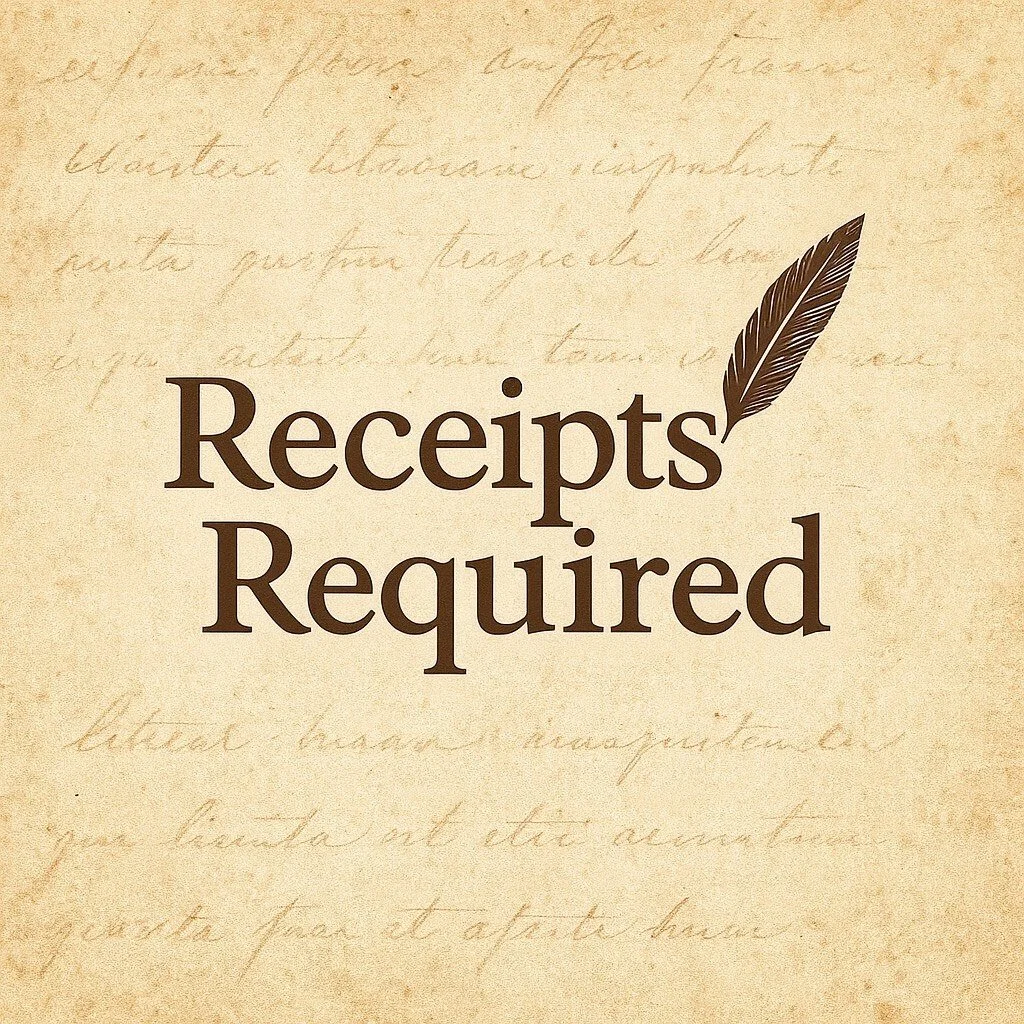Historians Hide the Truth?
History has always been more than just dates and names in a textbook. It’s how we make sense of ourselves — why societies rise and fall, how ideas spread, why human beings repeat the same mistakes generation after generation. But the way history is remembered, and the way it’s told, often gets tangled up with myth, legend, or outright misinformation.
That’s where Receipts Required comes in. This project, and now this podcast, is built on one core belief: history is only as strong as the evidence behind it.
The Problem with Pseudohistory:
Spend ten minutes on social media and you’ll see it. Claims that the pyramids were built by aliens. Theories that Hitler lived in Argentina until the 1960s. Whole invented civilizations — like the so-called Tartarian Empire — being treated as if they’ve been “covered up” by mainstream historians. These stories catch fire online because they’re dramatic, contrarian, and easy to share.
But they’re also hollow. They collapse the moment you look for actual receipts — archaeological finds, primary sources, or peer-reviewed scholarship. And yet, millions of people consume and spread them anyway.
Why? Because myths are comfortable. They make us feel like we’re in on a secret. They confirm our suspicion that the truth is being hidden. And they’re often easier to understand than the messy, complicated reality of history.
History Without Evidence Is Just Storytelling:
Now, storytelling has its place. It’s what makes history engaging, and why figures like Julius Caesar, Cleopatra, or Hammurabi still fascinate us today. But when stories replace evidence, history gets cheapened. We stop asking hard questions, and we lose the chance to understand how the past actually worked.
Take the so-called “Dark Ages.” For centuries, people imagined Europe after Rome’s fall as nothing but plague, ignorance, and squalor. But when you actually look at the evidence — the “receipts” — you find monasteries preserving knowledge, trade networks operating, towns expanding, and remarkable art and architecture being created. Was it chaotic? Yes. Was it “dark”? Not in the way the myth tells it.
This is why history needs receipts. Without them, we’re not doing history — we’re doing fanfiction.
What This Podcast Will Do:
In the pilot episode of Receipts Required, I lay out the roadmap. Each week, we’ll bust a historical myth or take apart a popular misconception. We’ll pull the receipts — archaeology, documents, inscriptions, and the work of serious historians — and show not just what the past was, but why it still matters today.
Some episodes will tackle big, dramatic claims: Was Hitler really in Argentina? Did the Vikings “discover” America? Were the Middle Ages really dark? Others will zoom in on the early civilizations that often get overlooked, like Mesopotamia — where writing, law, and cities were first born.
Along the way, we’ll also highlight recommended books, spotlight historians worth following, and give you quick “This Day in History” moments you can carry with you. The goal is simple: to make history engaging without sacrificing accuracy.
Why This Matters:
It might sound dramatic to say pseudohistory is dangerous, but it is. When people stop trusting evidence in one area, it bleeds into others. If you can convince yourself the Earth is flat because you don’t trust NASA photos, it’s not a huge leap to start distrusting medicine, elections, or institutions that hold society together.
But history can be the antidote. By showing that real evidence is not only available but also fascinating, we can remind people that truth is worth chasing. The past is full of stories — but only some of them are supported by receipts.
A Final Thought:
Launching this podcast has reminded me why I fell in love with history in the first place. It’s not just about kings and battles — it’s about questions. Who built this? Why did they do it? What evidence do we have? What does it mean for us today?
If you’ve ever rolled your eyes at another conspiracy theory, or wondered whether the history you learned in school told the full story, Receipts Required is for you. This isn’t about tearing down people’s beliefs for the sake of it. It’s about building something better: a history that respects evidence, embraces complexity, and is every bit as thrilling as the myths.
Because at the end of the day, history doesn’t need to be made up to be interesting. It just needs the receipts.
